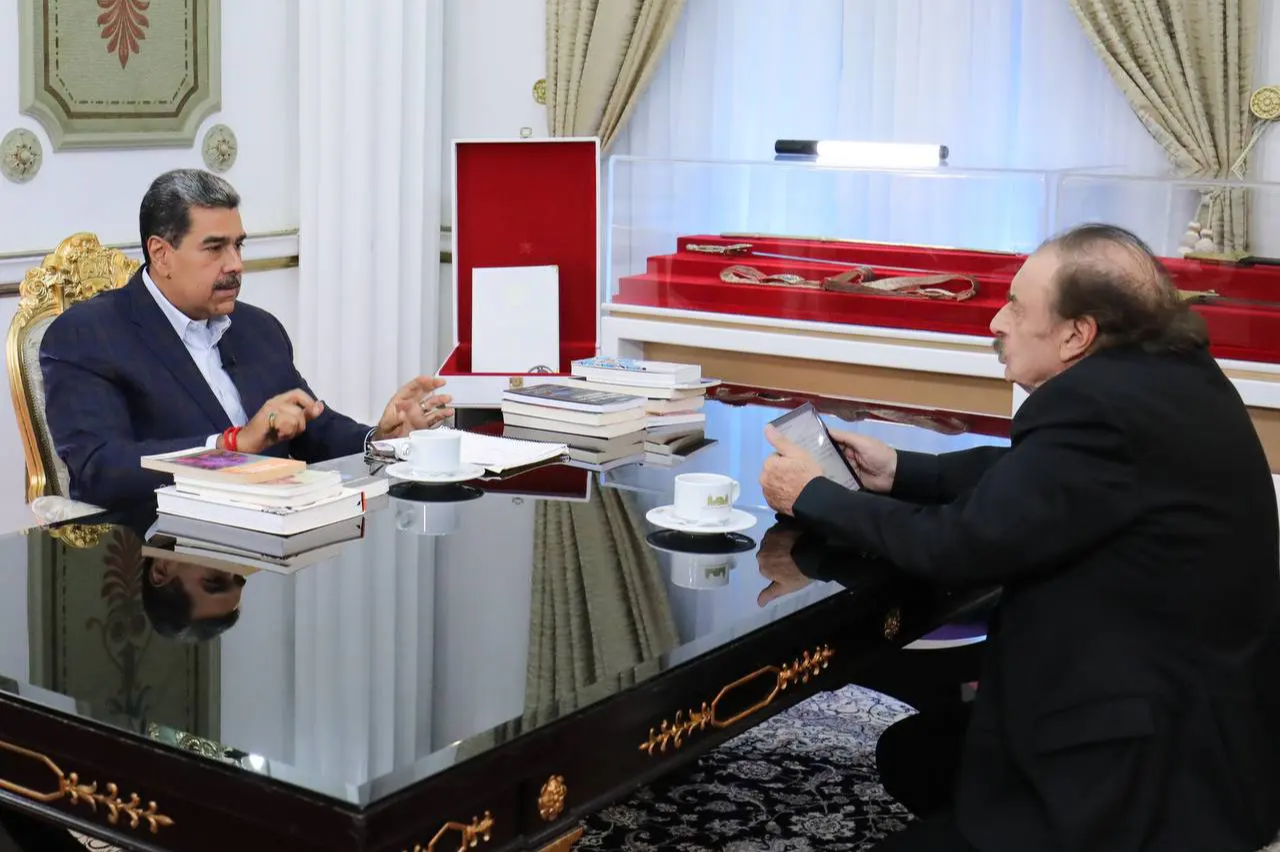
Maduro recommended several books on the development of Artificial Intelligence, including The Age of AI by Henry Kissinger, Eric Schmidt, and Daniel Huttenlocher, and Artificial: The New Intelligence and the Outline of the Human by Mariano Sigman.
Caracas, January 4 (RHC)-- Venezuelan President Nicolás Maduro highlighted the influence of social media on mental health and political processes, and advocated for global regulation of artificial intelligence to limit its harmful effects.
During an interview with Ignacio Ramonet, President Nicolás Maduro analyzed the impact of social media on society and the power of the private companies behind these platforms.
Maduro emphasized that these companies possess "an immense power of communications, which no one has ever had in the history of humanity," allowing them to profoundly influence the minds of millions of people, not only for commercial reasons but also for political purposes.
The Venezuelan leader highlighted how social media has been used for "the manipulation of electoral processes, political processes, and the destabilization of countries," mentioning that nations like China, India, and Russia already exert some control over these platforms.
In particular, he pointed out the challenges posed by TikTok. According to Maduro, this platform has been a vehicle for the promotion of violence and dangerous viral challenges, mentioning recent cases in Venezuela: "Due to one of TikTok's viral challenges, two children died, a girl and a boy." Another person was burned, with 70% of their body destroyed, while performing a viral challenge live.
In light of these events, the Supreme Court of Justice of Venezuela issued a ruling that requires TikTok to open an office in the country, pay a fine of 10 million dollars, and comply with Venezuelan legislation. Maduro warned that if these measures are not complied with, more severe actions will be taken: "We are obligated to protect the mental health of our children and young people."
The president also criticized TikTok's selective censorship, stating that during events of violence in Venezuela, "out of every 10 videos that arrived, 8 promoted violence in the streets."
Artificial intelligence: Between advances and threats
In another part of the conversation, Ignacio Ramonet introduced the topic of artificial intelligence (AI) and its ethical implications. Maduro agreed on the need for an international framework to regulate this technology, highlighting both its benefits and the risks it entails.
"Artificial intelligence, without a doubt, is a technological advancement that astonishes humanity," he said, mentioning that the main sources of AI are in the United States, China, and Europe.
However, Maduro warned about the harmful effects this technology can have if it is not properly regulated. Citing scientists who have raised concerns on the matter, he emphasized the importance of limiting dangers without stifling innovation: "We need to find a balance that allows for the advancement of technological and scientific reflection, but also protects societies from the threats it poses."
Finally, the president called for joint action from countries to face these global challenges. "It is essential that the nations of the world work together to define the rules of the game in this very complex field," he concluded.
President Nicolas Maduro warns about the risks of manipulation through AI and social media
[ SOURCE: teleSUR ]

